-
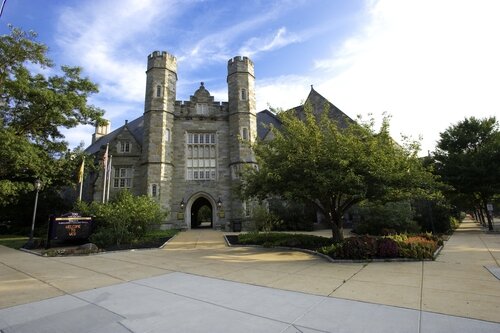
BS Computer Science with a Minor in Music
Also an AS in Computer Science along the way.
After high school I started college at West Chester University. I actually entered the university as an undeclared student, meaning, I hadn’t picked a major. Without knowing it at the time, this kind of put me behind the other students, who actually knew what they wanted to be studying, by about a semester. I knew that I wanted to be part of the music program, but I didn’t really understand the application and audition process and since neither of my parents had attended college, let alone for the arts, they were no help at all.
After one semester, I finally made my way into the music program as a Music Composition Major with Voice as my instrument. I managed to get a couple semesters under my belt as a music major before I had to switch schools.
I wasn’t taking my undergrad education very seriously and needed to withdraw from a couple courses to avoid ruining my GPA. My music education was suffering as well. I didn’t understand how much more commitment these courses would require than regular academic college courses, which remains true to this day. Arts courses often have labs or out of class time required. Think about choir performances for college choirs. The performance itself must be a significant part of one’s grade. So, it made sense to change my major to something else I was good at, I.T.
For whatever reason, understanding technology is somewhat of a gift. First, before pursuing IT as a major, I had to switch schools. I registered at the local community college in order to knock out as many required courses in my new major as possible before transferring to a new school or back to West Chester to complete the degree. This was a major cost cutting measure since, essentially the first two years of my college education were a wash with the exception of being able to declare a music minor.
Once I completed as many transferrable courses as possible at community college, which actually granted me an Associated Degree, I returned to West Chester and finished my Bachelor’s in Information Technology in 2003 on my birthday.
-
Voice Lessons
I started taking voice lessons when I was 17. I had heard anecdotally from my high school choir teacher that singers could get paid working for churches. Since I had been in virtually every choir that was available to me since I was in 3rd grade, including being in the chorus in musicals, advanced, chamber, and district choirs, I thought this might be something I could do. I opened up the literal yellow pages to “churches” and cold called every church listed there. To my surprise, I received one call back from the very church that housed the nursery school I attended that was, at one time, my family church, St John’s in Bala Cynwyd, Pennsylvania.
I worked there for an entire season, from September until June, singing every Sunday and special church service including Christmas and Easter. I made somewhere around $35 per hour, which at the time, blew my mind despite the fact it was only 4 hours a week. Still I thought I was doing great for a 17 year old!
I also had heard that one of my favorite singers in my choir took voice lessons, so, once I had a job, singing in the church, I booked my first voice lessons. Again, I opened the yellow pages and looked up music schools. I found Bryn Mawr Conservatory of Music and I gave them a call. I started my voice lessons just a week or two later with Mrs. Kathryn Blum Barone. I stayed there until I started my Freshman year at West Chester University where I ultimately became a music major with voice as my instrument. There I was able to take 3 semesters of voice lessons.
Unfortunately, I changed my major and ended up getting a degree in IT and didn’t take voice lessons again until I attended Temple University in 2016. There I studied theatre and eventually joined the choir and got access to voice lessons. There I got one semester of voice lessons with grad student, Tyler Tejada.
Soon, I hope to return to voice lessons and I find them invaluable for building a proper singing technique which has helped me tremendously as a performer, both singing and acting, even understanding how to reproduce different sounds in accents and dialects.
-
Temple University
Prior to starting grad school at Villanova University, I wanted to pick up some extra training in theatre. I completed the entire acting concentration which includes Acting One through Five as well as Voice for the Actor, Speech for the Actor, Advanced Speech, and Dance for the Actor. I also took Acting for Film and Television, Acting for Commercials, Unarmed Stage Combat, and Single Sword.
It was here that I was first exposed to the works of Uta Hagen and Michael Chekhov while also learning Shakespeare and about the business of being an actor. This is also where I was exposed to the vocal techniques of Pasty Rodenburg and Kristin Linklater. This is also where I learned about IPA and began independently working on Accents and Dialects. I also took the opportunity to join the University Choir and take private voice lessons.
One of the most interested classes, of course, was those taught by Ian Rose, Unarmed Stage Combat and Single Sword. Below is a picture of my certificate from when I passed my Unarmed Certification for the Society of American Fight Directors. Also, there’s a couple videos of my midterm and final performances.
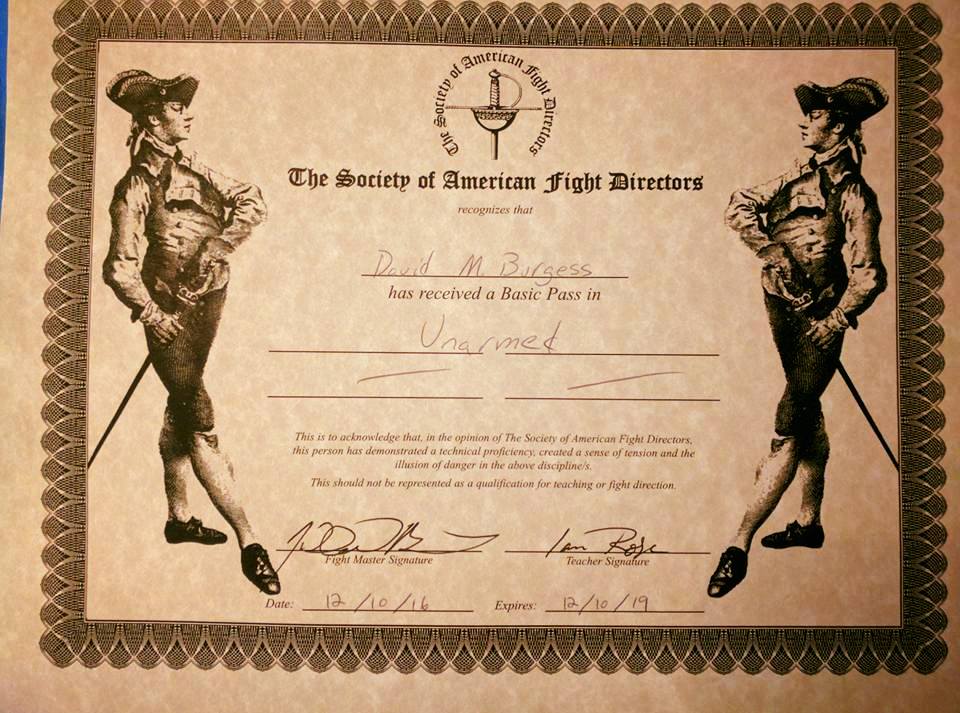
-
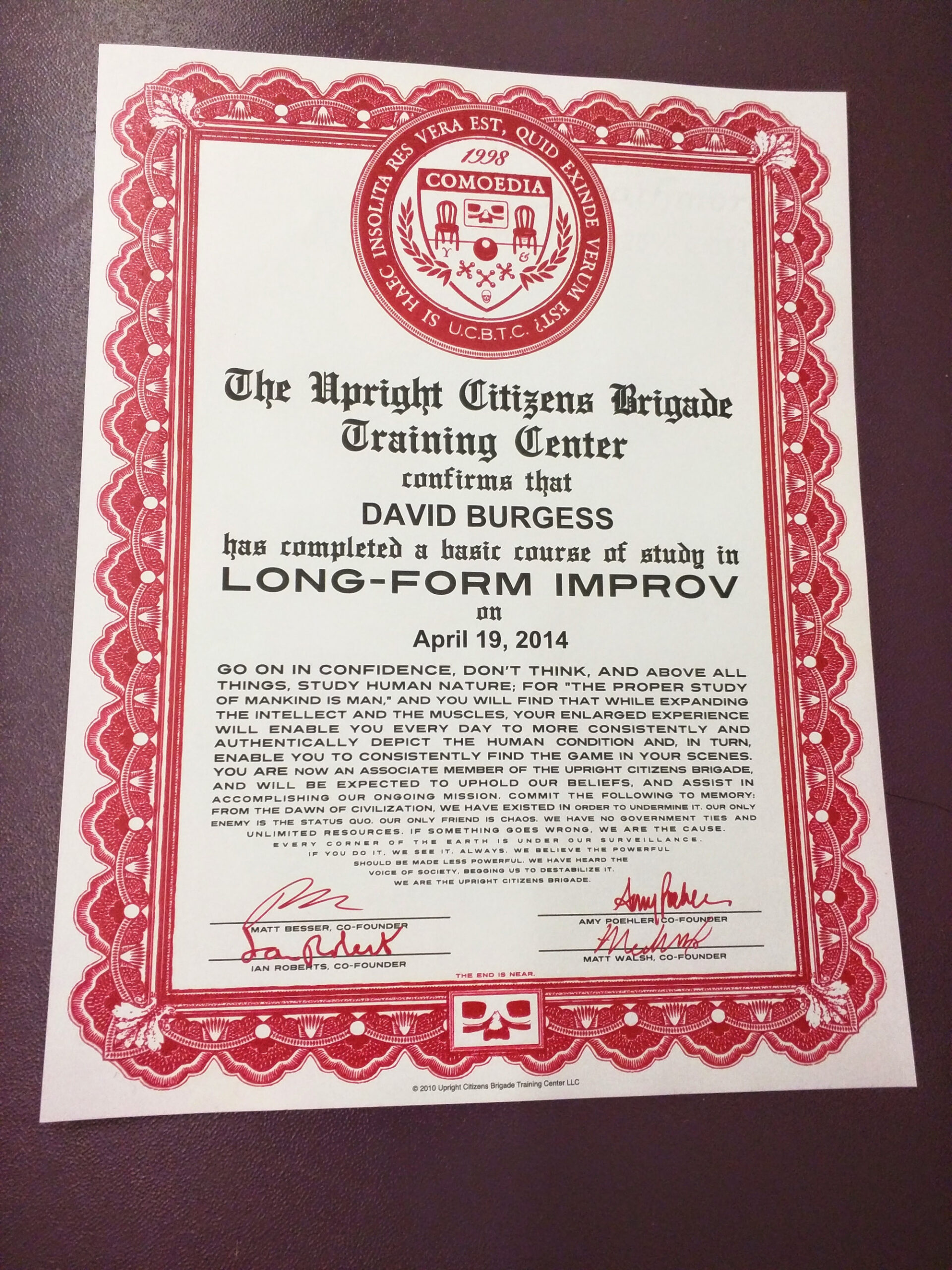
Sketch and Improv at Upright Citizens Brigade
After being in the audience at Saturday Night Live, I looked into how performers got the opportunity to audition for SNL. It turns out that SNL finds many of there performers by scouting the various comedy schools such as Second City, Improv Olympics, or the Upright Citizens Brigade. You may remember the Upright Citizens Brigade TV show staring Amy Poehler, Matt Besser, Ian Roberts, and Matt Walsh who went on to open the UCB Training Center in 1996.
Over the course of 2 years, I commuted to New York City, nearly every Saturday or Sunday during the regular school year, I took the entire Improv and most of the Sketch Writing curriculum. I was lucky enough to have such amazing teachers as Phil Augusta Jackson, Kate Wood Riley, Corey Brown, Geoff Garlock, and Nicole Drespel. Here I learned how to perform long form improv and write sketches while performing many wacky characters and attempting many accents and dialects.
While I was studying, they recommended two books that would help with improv skills. The first is “Truth In Comedy” which describes how the long form Improv Style, “The Harold” came into being. The Second is “Art By Committee” which teaches some more advanced Improv practices and features a DVD with performances by Tina Fey and Amy Poehler. By the time I completed my studies in Improv at UCB, they had released their official textbook, “The Upright Citizens Brigade Comedy Improvisation Manual.” I highly recommend all of these books in you are interested in improv, devised theatre, and collaboration. I even used a few of these as resources for my graduate thesis at Villanova.
During the pandemic, the school I attended in New York, closed. However, a new location has opened up as well as new online offerings. Go to UCBComedy.com for more information
-
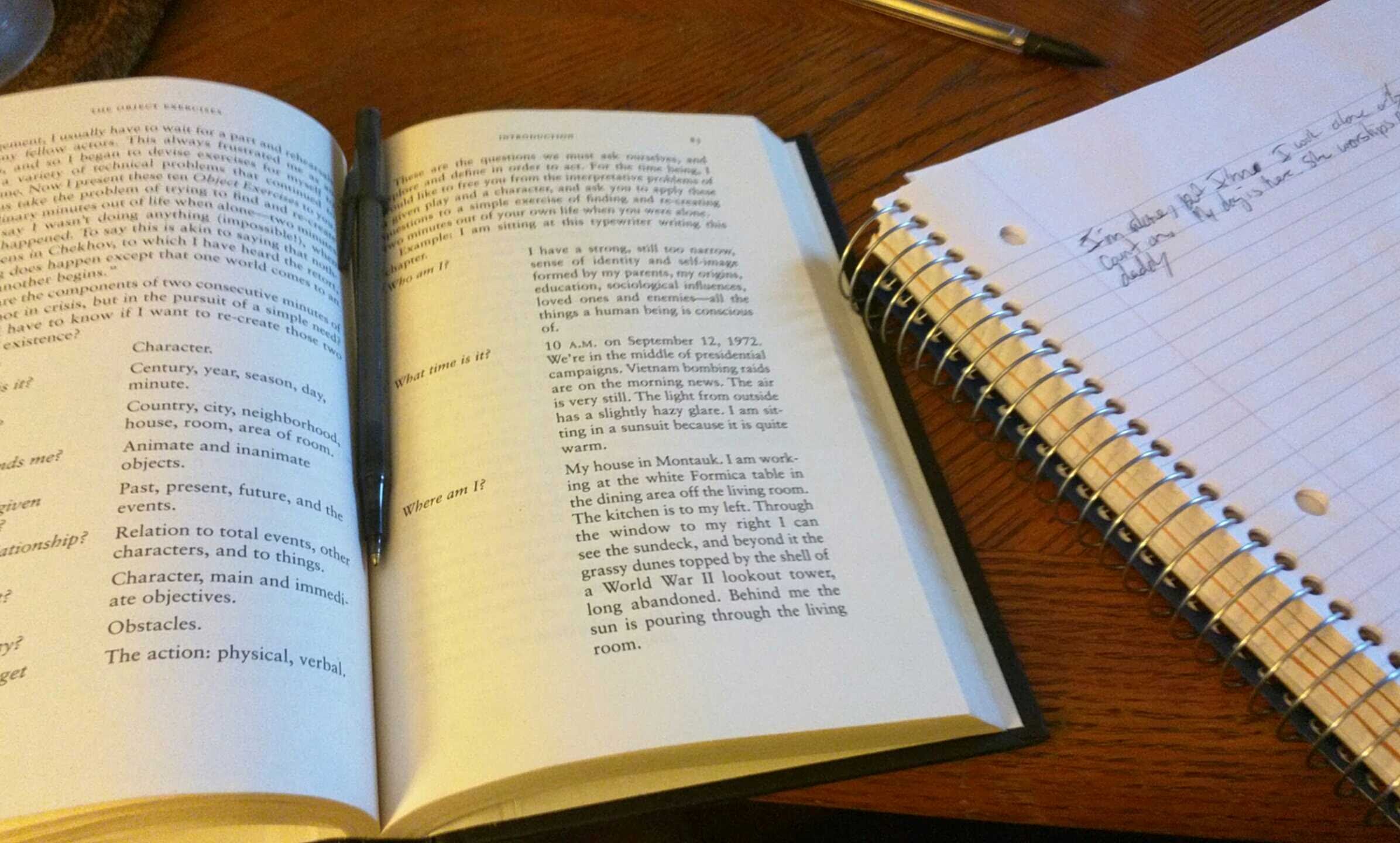
The Study of Acting
While training, I have been exposed to a variety of acting styles and techniques. There are two, however, that resonated with me as performer and continue to inform my performances. That would be Uta Hagen’s, “Respect for Acting” and Michael Chekhov’s, “To the Actor.“
Uta Hagen’s approach emphasizes realism, psychological depth, and the actor’s connection to the character and circumstances. Hagen’s principles, as outlined in “Respect for Acting” include:
- Object Exercises: Actors focus on specific objects to enhance concentration and sensory awareness, grounding their performances in tangible, sensory experiences.
- Substitution: Encourages actors to replace personal experiences with those of the character, fostering authenticity and emotional truth in their portrayal.
- Personalization: Actors draw on their own emotions and memories to connect with the character’s feelings, creating a genuine and relatable performance.
- Units and Objectives: Breaking down scripts into specific beats or units, actors identify their character’s objectives in each moment, promoting a dynamic and purposeful approach to scenes.
- Through-line of Actions: Emphasizes the importance of understanding the character’s overarching goals and desires throughout the entire play or scene, maintaining consistency and coherence in the portrayal.
Michael Chekhov, a Russian actor and theater practitioner, outlined his approach to acting in his book “To the Actor.” Chekhov’s principles focus on the psychological and spiritual aspects of the actor’s craft.
- Psychological Gesture: Encourages actors to find a physical gesture that embodies the essence of a character, fostering a deeper connection to the character’s emotional core.
- Imagination: Emphasizes the use of imagination to evoke authentic emotions and experiences, allowing actors to tap into the rich inner life of their characters.
- Sensations: Actors explore the physical sensations associated with emotions, creating a visceral and embodied performance.
- Form: Highlights the importance of understanding the overall structure of a play or scene, guiding actors in creating a coherent and impactful performance.
- Rhythm: Advocates for the exploration of rhythmic patterns in speech and movement to enhance the expressiveness and dynamic quality of a performance.
I highly recommend both of these books. Click here to get “Respect for Acting” and click here to get “To the Actor”
-
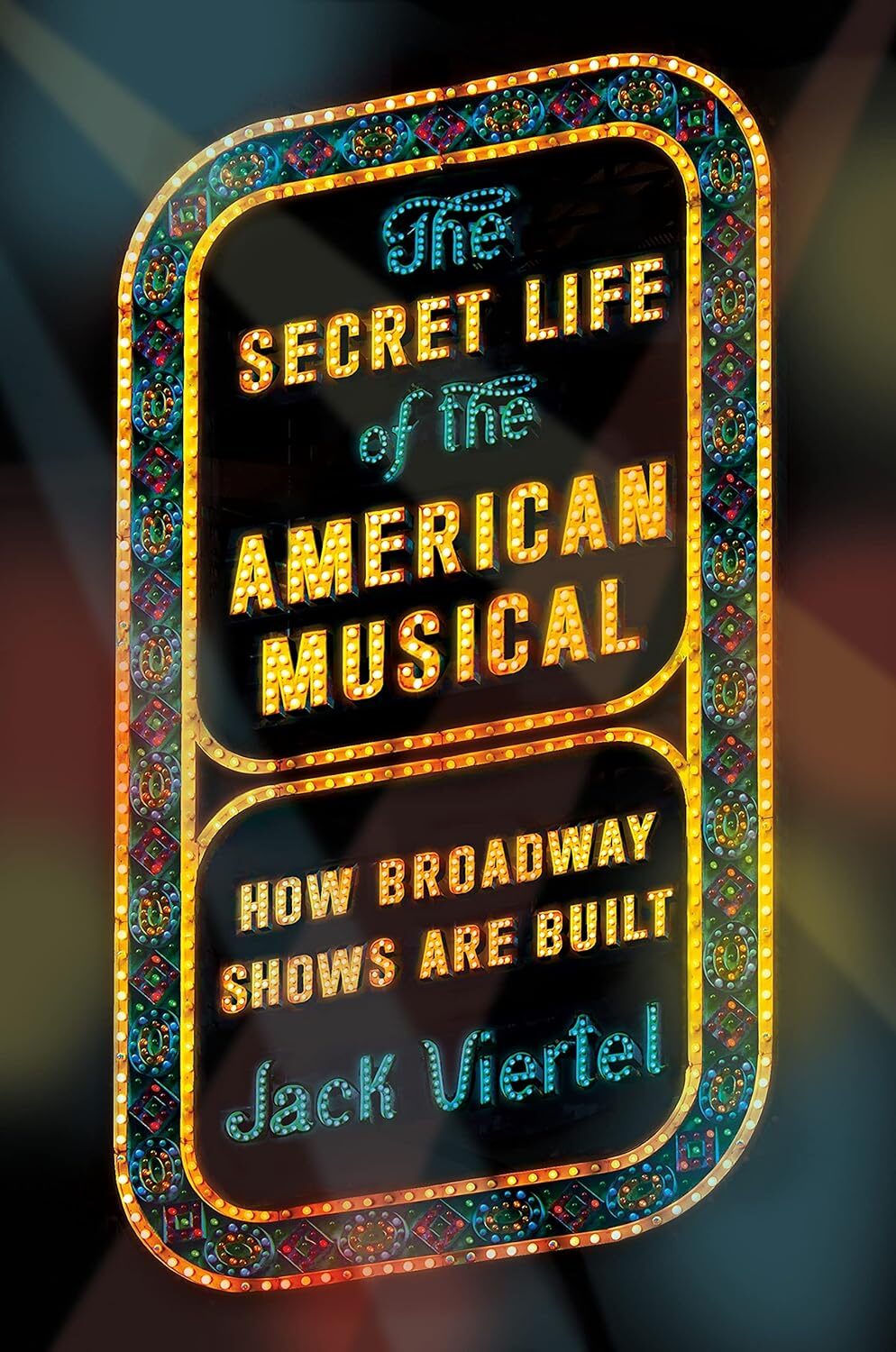
I Wrote A Musical
Ok, more like, I’m writing a musical. It’s got a structure with many of the scenes written and placeholders for the music. Unfortunately, there’s no music yet, maybe just a few brainstorms for words, if anything. However, it’s something I will be returning to. One thing that’s helped so much with the planning process of a musical, is a book, The Secret Life of the American Musical by Jack Viertel. The author takes a close look at the structure of dozens of popular musicals and explains how all the different parts work together. I highly recommend this book if you are thinking about writing a musical. You can grab it here!